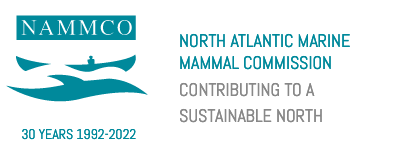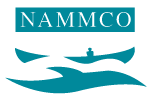3 April 2019: NAMMCO 27
The 27th meeting of the NAMMCO Council was officially opened this morning by the Faroese Minister of Foreign Affairs and Trade, Poul Mikkelsen, who welcomed participants to the Faroe Islands and emphasised the importance of sustainable management of marine mammals as a food resource. You can find the entire Opening Address below. For the Faroese version, go here.
The meeting is chaired by Amalie Jessen of Greenland, and Geneviève Desportes, the General Secretary of NAMMCO, is the rapporteur.
Yesterday saw the meetings of the Management Committee on Seals and Walruses (chaired by Guro Gjelsvik of Norway) and the Management Committee on Cetaceans (chaired by Nette Levermann of Greenland).
NAMMCO 27 is hosted by the Faroe Islands at hotel Hafnia in beautiful Tórshavn.
You can find the meeting documents here.
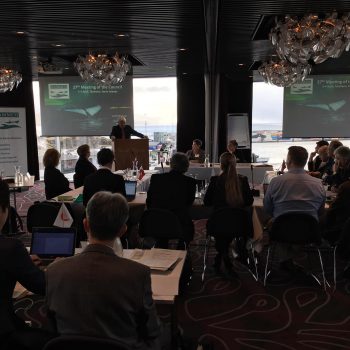
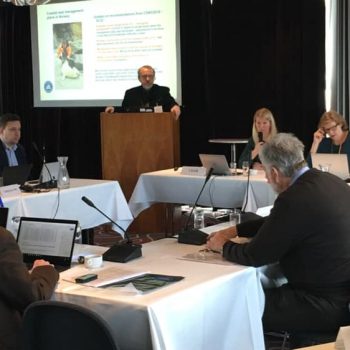
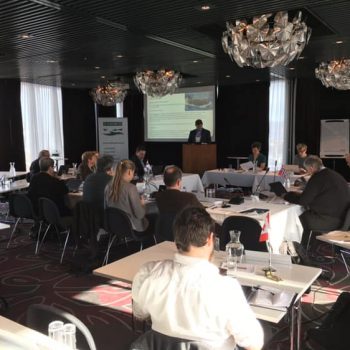
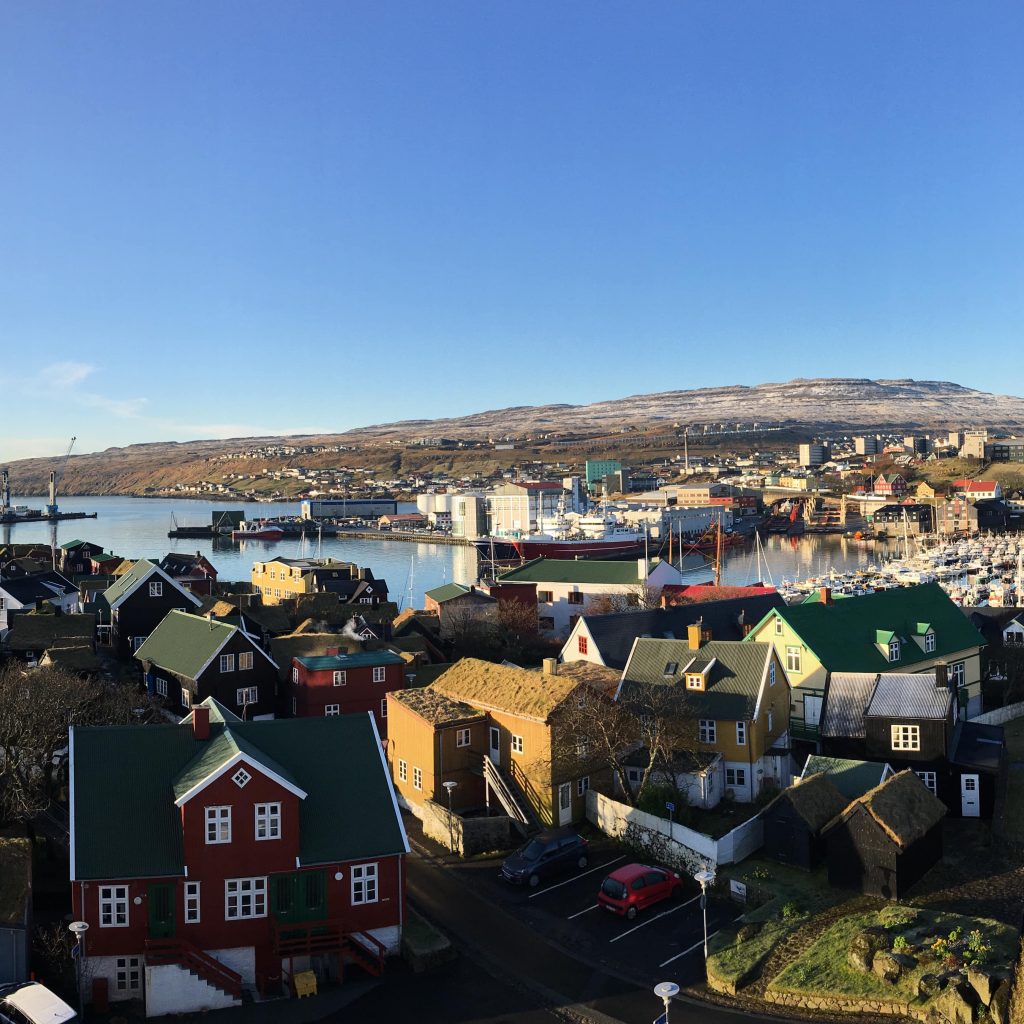
Opening Address at the 27th Annual Meeting of the North Atlantic Marine Mammal Commission
Tórshavn, Faroe Islands, 3 April 2019
Madam Chair, distinguished delegates, observers, ladies and gentlemen
Let me begin by wishing you all a very warm welcome to the Faroe Islands and to our capital, Tórshavn. It is a great pleasure for me to open the Twenty Seventh Annual Meeting of the North Atlantic Marine Mammal Commission.
It has been nine years since the Faroe Islands last hosted the annual meeting of NAMMCO. I am very pleased that we can host again during my time as Minister for Foreign Affairs and Trade.
For the Faroe Islands, taking an active part in regional fisheries management organisations has high priority. This includes NAMMCO, which has a special importance for the Faroe Islands, for a number of reasons.
NAMMCO is the only international body for cooperation on the conservation and management of all marine mammals, including seals and small whales, such as the pilot whales (grindahvalir) that we have used here for centuries. NAMMCO was created to fill this gap in international cooperation.
For conservation of shared resources of the sea, international cooperation is much more likely to work best on a regional, rather than a global level.
Before countries can work effectively together on any issue, we first have to be sure that we are all talking the about the same thing. NAMMCO member countries agree that whales and seals are resources which can and should be used sustainably for the benefit of our peoples and economies.
Working through NAMMCO fulfills the requirements of the UN Law of the Sea for states to cooperate through appropriate international organisations. And sustainable whaling and sealing is fully in line with United Nations Sustainable Development Goal 14 – to “conserve and sustainably use the oceans, seas and marine resources for sustainable development.”
Our common goal is to make sure that our use of whales and seals is sustainable. We do not need to make unnecessary distinctions between commercial and non-commerical activities. We just need to base our decisions on the best available scientific advice.
Our unique form of whaling in the Faroes is largely non-commercial – that is the way it has developed over centuries as a part of Faroese food culture. But we also fully respect the rights of others to trade commercially in their marine mammal resources, also on international markets.
We have seen how a global organisation, the International Whaling Commission, is still unable to find common ground on the management of whales as resources. After nearly four decades, the global ban on commercial whaling is still in place. This is because many of the IWC members do not consider whales as resources and have blocked decisions on sustainable whaling quotas.
By doing this, they are actually leaving whales out of the UN’s sustainable development goals, and they are ignoring the rights of peoples to benefit from their own natural resources. This is unacceptable. Even if countries do not themselves consume marine mammals,they should respect the rights of others to do so.
This is also why the Government of the Faroe Islands fully understands and respects Japan’s recent decision to leave the IWC and resume commercial whaling in its own waters. We welcome Japan’s continued interest and participation as an observer in the work of NAMMCO. I am sure there are many ways in which this cooperation can become even more active and mutally beneficial. I know that Japan has seen NAMMCO as a model for setting up a sister organisation in the North Pacific, and I would like to wish Japan all success in making this happen.
I believe that the time has come for the Faroe Islands to review our position as a part of Denmark’s membership of the IWC.
We would also like to see Canada and the Russian Federation take the next step, after many years as valued observers in NAMMCO, and join us as full members as soon as possible.
Ladies and gentlemen,
After 27 years, NAMMCO remains just as valuable and necessary as it was in 1992, when the Faroe Islands signed the founding agreement, alongside Norway, Iceland and Greeenland. Since then it has grown into an organisation that is respected for the quality and credibility of its scientific and other technical assessments and advice. This is the core of NAMMCO’s work and must continue to be given high priority.
The first ever independent Performance Review of NAMMCO has just been completed and will be presented here today. We will be listening carefully to the Panel’s conclusions and recommendations about how we can build on what NAMMCO has achieved so far.
Finally, I would like to say that I am very encouraged to see more balanced information on whaling and sealing in the international media in recent years. I take this as a sign that people have become better informed and are more interested in the cultural context of food production. More and more people want to make sustainable choices in their own consumption patterns. And more people are beginning to understand what we have known in the North Atlantic for a very long time – that living marine resources, including marine mammals, are among the most environmentally friendly sources of food available.
I wish you a very productive meeting and I hope you will all enjoy the rest of your week in the Faroe Islands.
Thank you.
